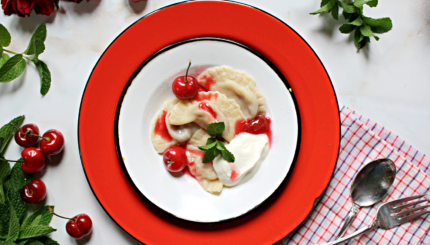It would be hard to tell the story of Moroccan Jewry without looking at mahia, the quintessential spirit that defined Jewish life in Morocco. Mahia has a fascinating history that begins with how it’s distilled. Using figs and dates infused with aniseed, this slightly sweet aromatic beverage is an ultimate symbol of Moroccan Jewish heritage.
Traditionally distilled as an eau de vie by the Jewish community in the Mellah (the Jewish quarter of Morocco), and hidden in their basements, for Moroccan Jews homebrewing was the only way to enjoy alcohol, due to booze being haram for Muslims. The drink is typically sipped neat, during or after dinner, though some Moroccan mothers recommend it be enjoyed alongside breakfast to give strength for the rest of the day.
For many Moroccan Jews, mahia is not just a drink but a part of religious and cultural rituals, such as “Hillula” pilgrimages honoring great rabbis and Jewish saints. Mahia is thought to be able to absorb the saint’s powers just by being in his presence. When the pilgrimage is over, the drink is brought back home for consumption for those who could not make the trip, which makes mahia less a vehicle for intoxication and more a path to connecting with one’s spirituality, explains anthropologist Oren Kosnansky.
Kosnansky cites one account of a Moroccan Hillula celebration that explains how chaotic it was: “It is difficult to render an account of the kind of frenzy that one sees at the time of the major pilgrimages, with their bacchic disorder and heavy drinking… Do these gestures attest to a woeful inability to appeal to God except with carnal exaltation?”
The Nosher celebrates the traditions and recipes that have brought Jews together for centuries. Donate today to keep The Nosher's stories and recipes accessible to all.
Despite its Jewish origins, mahia has found a way to transcend religious boundaries. While identities of mahia distillers were hidden to protect them from the law, the tradition of mahia managed to break through the walls of the Mellah, and found a way to the Moroccan black market, for those fiending for a taste.
In the past century, as Morocco’s Jewish population deserted the Sahara for Israel, fewer and fewer possessed the secret recipes for distilling the drink. This brought bootleg mahia to the rural areas and streets of Morocco, nicknamed “Moroccan Moonshine” for both its strength and danger, with reports that mahia claimed the lives of eight Moroccans and severely poisoned 81 more in the past century.
Outside Morocco, however, mahia has found success with Western audiences with London-based Sahara Distillery and Nahmias Distillery in New York crafting their own smoother variations built for the western palate. mahia has become a favorite for mixologists, with its subtle but special flavors. Take it from mixologist and mahia enthusiast Warren Bobrow, who praises the drink for its unique flavor that is “chock-full of roasted figs and exotic anise, bathed in pools of warm sunshine.”
Jews have managed to find unique ways to distill alcohol for centuries, the Tunisians for instance have boukha, a similar spirit based on figs, Levantine Jews have arak. But mahia tastes and feels different, like an entire community and culture distilled into one beverage. Mahia is a testament to Morocco’s multicultural history and artisanal expertise. Its revival not only preserves this heritage but also introduces global audiences to a unique facet of Moroccan culture — a true “water of life” that bridges past and present.



